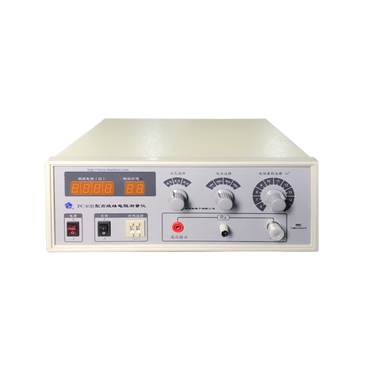Custom Testing Equipment for Conductor Resistance Measurement and Analysis
Understanding Custom Conductor Resistance Test Machines
In the world of electrical engineering and manufacturing, ensuring the quality and reliability of conductive materials is paramount. One of the critical testing equipment used for this purpose is the custom conductor resistance test machine. This specialized apparatus is designed to measure the resistance of conductors, be they wires, cables, or other conductive components. By doing so, it provides invaluable data that helps manufacturers maintain quality standards and comply with regulatory requirements.
What is Conductor Resistance Testing?
Conductor resistance testing evaluates how well a conductor can carry electric current. The primary goal of this testing is to determine the resistance in ohms (Ω) of a conductor at a specific temperature. High resistance in a conductor can lead to inefficiencies, overheating, and ultimately, equipment failure. Therefore, it is crucial to ensure that the resistance of the conductor is within acceptable limits as defined by industry standards.
The Importance of Customization
While there are many standard conductor resistance test machines available, custom machines can be designed to meet the unique requirements of different applications. Customization can cater to factors such as the type of conductor being tested, the testing environment, and specific measurement capabilities. For instance, testing high-voltage conductors may require different specifications compared to low-voltage testing.
Custom machines may incorporate advanced features such as automated measurement processes, integrated data logging, and compatibility with various conductor sizes and materials. These enhancements can improve overall testing efficiency and accuracy, allowing manufacturers to identify issues during the production process rather than after product deployment.
Key Features of a Custom Conductor Resistance Test Machine
1. Precision Measurement High-accuracy measurement is critical for effective testing. Custom machines often utilize advanced technology such as four-terminal sensing to minimize contact resistance and provide highly precise readings.
custom conductor resistance test machine

2. Versatile Testing Capabilities A well-designed custom machine can test different types of conductors, including copper, aluminum, and their alloys, as well as various configurations such as stranded and solid conductors.
3. User-friendly Interface Many modern testing machines come equipped with touch screens and intuitive software, enabling operators to conduct tests easily and interpret results quickly.
4. Data Analysis and Reporting Custom machines can feature built-in software that analyzes testing data, generates reports, and tracks historical performance. This capability is vital for maintaining quality assurance and meeting certification requirements.
5. Robust Design The testing environment can vary greatly, from controlled lab conditions to more rugged industrial settings. Custom machines can be designed with robust housing and components that withstand the expected conditions without compromising performance.
Applications of Custom Conductor Resistance Test Machines
These machines find applications in various industries, including
- Electrical Power Distribution Ensuring that cables and conductors used in power transmission have optimal resistance levels to ensure efficiency and safety. - Manufacturers of Electrical Components From connectors to circuit boards, ensuring that newly produced components meet resistance specifications before reaching customers. - Automotive and Aerospace Industries Testing wiring harnesses and other conductive components to ensure durability and reliability under demanding conditions.
Conclusion
The development of custom conductor resistance test machines reflects the growing need for precise and reliable testing in an increasingly diverse and complex electrical landscape. By tailoring testing solutions to meet specific requirements, manufacturers can enhance product quality, ensure compliance with standards, and avoid costly failures. As technology continues to evolve, these machines will play an indispensable role in advancing the future of electrical engineering and manufacturing. Proper investments in such specialized testing equipment ultimately contribute to the safety, sustainability, and efficiency of electrical systems worldwide.
-
Why the Conductor Resistance Constant Temperature Measurement Machine Redefines Precision
NewsJun.20,2025
-
Reliable Testing Starts Here: Why the High Insulation Resistance Measuring Instrument Is a Must-Have
NewsJun.20,2025
-
Flexible Cable Flexing Test Equipment: The Precision Standard for Cable Durability and Performance Testing
NewsJun.20,2025
-
Digital Measurement Projector: Precision Visualization for Modern Manufacturing
NewsJun.20,2025
-
Computer Control Electronic Tensile Tester: Precision and Power for the Modern Metal Industry
NewsJun.20,2025
-
Cable Spark Tester: Your Ultimate Insulation Assurance for Wire and Cable Testing
NewsJun.20,2025
 Copyright © 2025 Hebei Fangyuan Instrument & Equipment Co.,Ltd. All Rights Reserved. Sitemap | Privacy Policy
Copyright © 2025 Hebei Fangyuan Instrument & Equipment Co.,Ltd. All Rights Reserved. Sitemap | Privacy Policy
